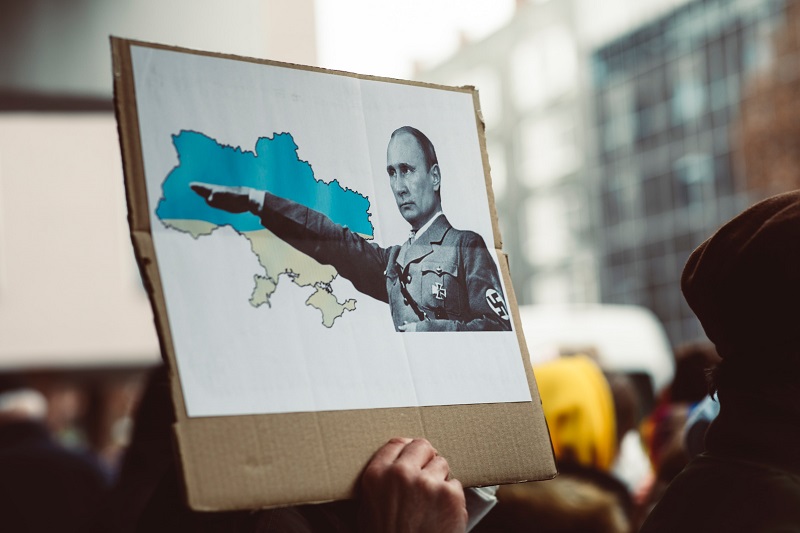
Assessing the Implications of the 11th Package of Sanctions
By focusing on foreign nations and businesses involved in selling items to Russia that are subject to sanctions, the 11th package of penalties, in comparison to preceding iterations, seeks to prevent the circumvention of already enacted restrictions. The goal is to increase the effectiveness of sanctions, but it’s critical to handle the conundrum of not alienating Central Asian and South Caucasian nations because pushing them towards tighter connections with Russia can be advantageous to Russia. Furthermore, given China’s increasingly assertive foreign policy in Central Asia, there is a chance that secondary penalties could have negative implications for Europe.
Factors Influencing Trade Volume Increase
A broader context should be taken into account when analyzing the increased trade volume between the European Union (EU) and nations accused of evading sanctions. First, the recovery from the low levels brought on by the COVID-19 epidemic can be partly blamed for the growth. Second, Russia’s distribution systems for Western goods were formerly a source of dependence for Central Asian and South Caucasian nations. These supplies are now being sent directly to these nations after international businesses withdrew from the market that had been sanctioned. Last but not least, trade with all commercial partners, not just Western ones, has been impacted by the global surge in energy and commodity costs. Therefore, it’s crucial to refrain from drawing inferences based only on rising trade volumes.
Keep Reading
Efforts to Prevent Sanctions Circumvention
Recent trips by EU Special Envoy David O’Sullivan and U.S. Assistant Secretary of Trade Elizabeth Rosenberg to Central Asian nations brought guarantees from those governments that they would take steps to prevent Russian sanctions from being violated on their soil. In Kazakhstan, for instance, tight compliance controls were placed on Russian and Belarusian companies listed on its stock exchange, and a new electronic system was created to monitor transiting products. Additionally, certain banks in Kazakhstan, Armenia, and Hong Kong are blocking transactions made by Russian enterprises about particular gadgets. This presents difficulties for Russian businesses.
Complexities in Controlling Transiting Goods
Due to the existence of the Eurasian Economic Union (EAEU), which consists of Russia, Kyrgyzstan, Kazakhstan, Belarus, and Armenia, controlling the flow of products to Russia through nearby nations is difficult. During a recent trip to Moscow, Kazakhstan’s president, Kassym-Jomart Tokayev, publicly criticised the EAEU’s internal politics. Kazakhstan and China want to increase the capacity of the Trans-Caspian International Transport Route, which avoids Russia, despite its difficulties. However, it might take several years for this alternate route to be fully developed.
Potential Impact of Secondary Sanctions
Secondary sanctions might seriously harm the EAEU and have a negative impact on the investment climate in Central Asia. The difficulty arises from the potential negative effects of secondary penalties in light of China’s regional geopolitical aspirations. China has been making significant investments in Central Asian nations as part of its efforts to create a backup land route to Iran and other oil-rich regions. The Belt and Road Initiative and EAEU projects may be coordinated, President Xi Jinping suggested, indicating less room for Russia in China-Central Asia cooperation.
Addressing Chinese Involvement
Additionally, Chinese businesses have been accused of providing assistance in getting through Russian export restrictions on specific commodities. However, it appears that sanctions against these corporations have been avoided in exchange for tighter oversight following conversations between the European Union and China’s foreign minister, Qin Gang. The changing possibilities show that a conflict between the West and China is developing, with both sides forging new alliances. While the United States is improving its connection with India, China is forging closer ties with Central Asia.
While the EU has designated Kazakhstan and other nations as priority trading partners, China has already surpassed these nations as their top trading partner or is on track to do so. Consider unforeseen effects as the EU presses through with the 11th set of sanctions against Russia. Furthermore, China’s assertive involvement in Eurasia challenges the European position on Russia and might change the balance of power in the region.
It is essential to foresee the effects of the 11th package of sanctions on the impacted countries because it is anticipated to be imposed in the upcoming weeks. Although the goal is to increase the effectiveness of punishments, unforeseen repercussions must be taken into account. For all parties involved, China’s growing influence in Eurasia, particularly in Central Asia, presents both opportunities and problems. A thorough analysis of the situation is necessary to strike a balance between the goals of sanctions effectiveness, regional stability, and preserving strong partnerships.



